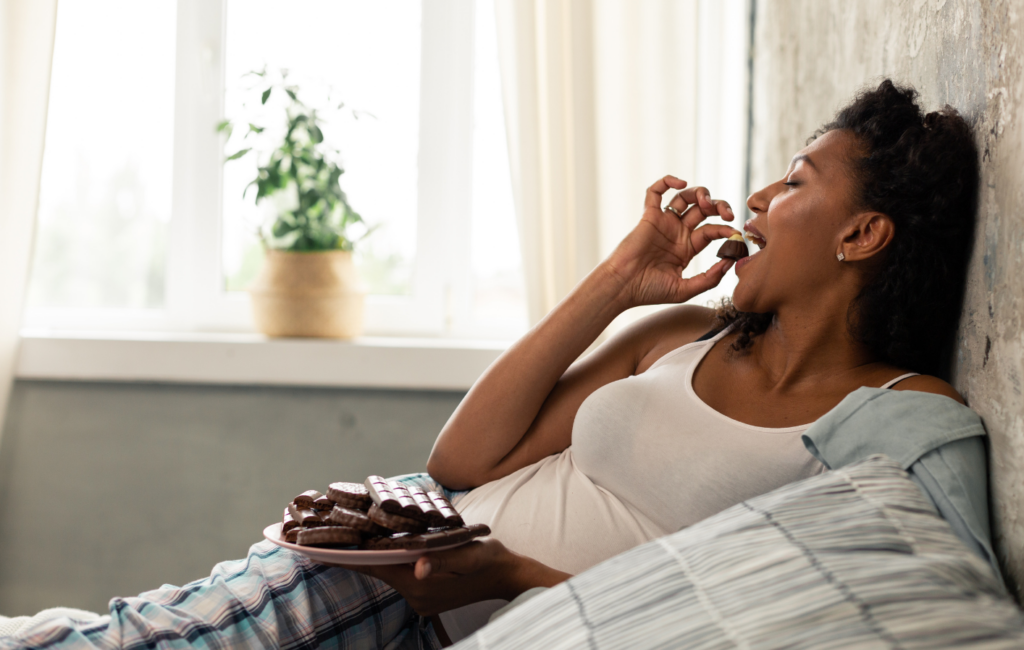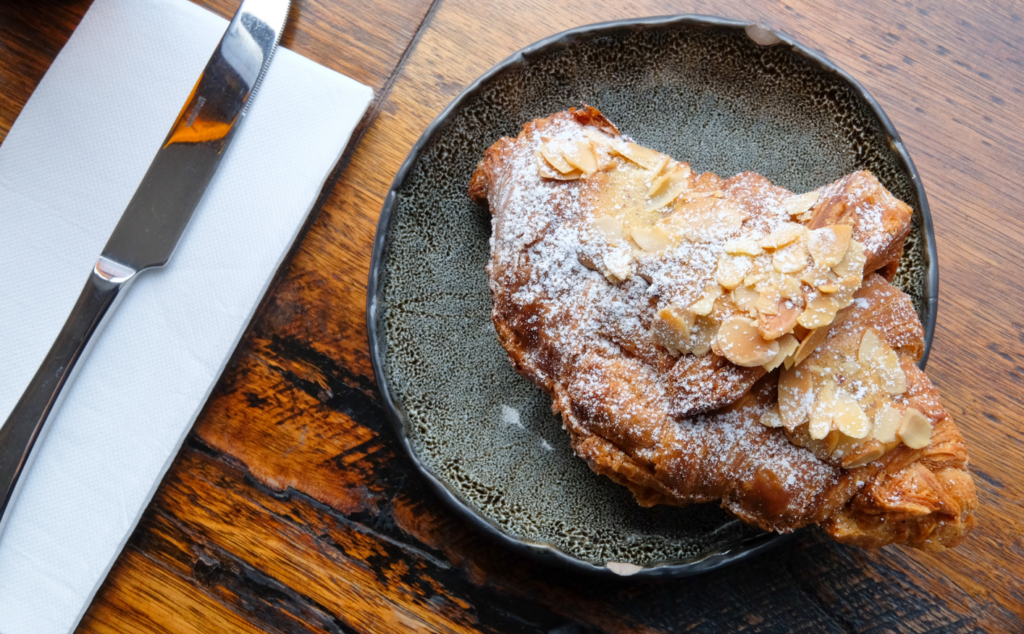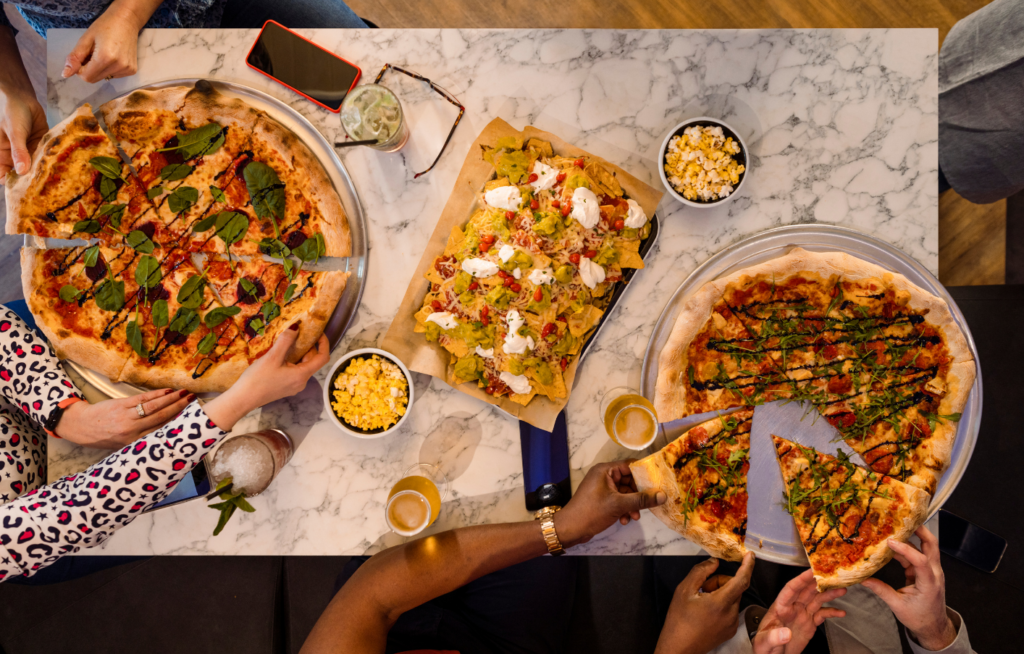Your Special Offer
I'm Leanne Moran
A Nutritional Therapist and specialist in helping people overcome emotional eating, overeating and binge eating.
After years of working with women with hormone imbalances, I noticed how many women I worked with were experiencing stress around their diet and exercise, emotional eating, irregular appetite, cravings, overeaing and binge eating.
The disordered eating habits often started due to dieting and constant pursuit of weight loss. The rules, restrictions and food mindset was getting in the way of them making long lasting healthy changes, not to mention the impact of this stress, physical symptoms of restriction and rebound weight gain.
So I decided to take the leap and train as a Emotional Eating and Binge Eating Specialist!
I am now running my signature 16 week programme BECOMING Weightless, helping women heal their relationship with food, so they can live healthy fulfilling lives!
If you'd like to know more - hit the button below!
Do you Feel like you are Addicted to Sugar?

Posted In
July 2, 2024
Posted On
Would you like to be able to have some chocolate, crisps, treat/junk foods without overeating them or having constant cravings?
Wouldn’t it be nice to be able to take or leave “treat” foods without having to control portions, keep them away from you, and without guilt or shame after?
In this blog I want to talk about food habituation. First, I’ll describe what ‘Habituation’ is by giving an example.

I love chocolate, I used to love it a lot more and felt like I was addicted to it.
So much so that I felt like couldn’t control myself around it, I would have to use self-discipline and willpower to portion control, I would even get worried if chocolate or junk was brought into the house as I found it hard to stay away from, and that I would end up breaking my diet.
I used to try everything:
- Ban it from the house.
- Have it hidden.
- Only buy the mini sized bars.
- Buy a brand I didn’t really like.
- Limit it to having it on “cheat days”.
- I even tried just smelling it (Yes, I am serious – I got this tip from a women’s magazine!)
Plus many more other ways I tried to control and reduce my intake, in fears I wouldn’t stop eating it until I felt sick, disgusted in myself and broke my diet.
I always craved it, if I had some in the house I would find it hard not to eat it.
This is exactly what I hear from clients, for some it is crisps, for others it is trying to stop eating their child’s leftovers. Whatever food it is, if you can’t control yourself around food – listen up!
Constant thoughts about food is what we now know as “Food noise”: the inner chatter of our mind about food.
There can be many reasons for food noise, many reasons for overeating, binge eating and many different reasons for cravings but one of the main drivers is restriction.
Restricting foods often makes them more appealing and more enticing to us.

Clients tell me that they don’t keep certain foods in the house (usually what we commonly know as “junk foods”), because if it’s there they will eat it.
This is the opposite of habituation.
Habituation means becoming so used to something that you lose your response to it, it isn’t enticing you. You might not even notice it is there!
Here’s an example of noise habituation:
Imagine you bought a new fridge.
This fridge has a noise that you old fridge didn’t have.
At the beginning the noise is annoying, you might consider even bringing it back to the shop as it is irritating and constant.
But then a few weeks go by and you realise, you haven’t really noticed the noise anymore…
has the noise gotten lower?
No, you have just become habituated to the noise, your senses aren’t as focused on it.
Or, imagine you bought a new car.
At first, it is so exciting.
But, over time, the novelty wears off.

This is the same with food.
When we restrict foods, we put them on a pedestal.
They become like that forbidden food, more enticing to us.
Which means when we DO allow ourselves to eat them the taste and flavour is more intense, more pleasurable and exciting to our taste buds.
We also create guilt around eating them, sometimes eating them quickly or in secret as we believe they are bad and we shouldn’t eat them.
This creates significance around this “off limit”/exciting food – this means if we are around it, we seemingly can’t control ourselves and crave it.
Habituation is the key to stopping this.
When we go through the process of habituation, we disable the food noise, and reduce the excitement of whatever it is we’re trying to stay away from.
This results in us being totally unbothered by the food, we can have it in arms reach and not want any at all, if we do have some we can stop when we have had enough, there is no loss of control or constant cravings.
5 top tips for food habituation:
1. There is more to food habituation than I can cover in this blog. Get professional support.
You could have other drivers such as emotional eating, disconnection from your hunger and satiety cues + more.
Food habituation can be quite scary if you have restricted foods and/or counted calories and macronutrient for years. So doing this slowly and comfortably with professional support is my top tip.
2. If you decide to do it yourself, pick ONE food at a time to reintroduce.
3. Hunger enhances the dopamine reward of eating.
When reintroducing a banned food, aim to eat it at a time when you are not extremely hungry. Maybe as a desert after a balanced meal, for example.
4. Repetition is key to habituation.
When you eat a food over and over on multiple occasions, it loses its appeal.
5. Habituation will only work if you have worked through “unconditional permission to eat”.
If deep down inside you are planning to restrict again, chances are you are not giving yourself true permission.
Pseudo permission can result in “the last supper effect” when the food is more enticing as you know it will be banned again soon…
I would love to hear your thoughts on Habituation?
Comment below, my email is always open if you would like to chat or have any questions on my blog posts!
Thanks for reading!
Leanne x

(PS. Limited spaces are opening for my 1:1 programme BECOMING Weightless, if you would like to talk about your relationship with food, overeating, emotional eating, binge eating – book in for your FREE Clarity Consultation just click HERE to book)
Leave a Reply Cancel reply
© 2023 LEANNE MORAN. ALL RIGHTS RESERVED.
Privacy Statement.
Cookies Policy.
Join me over on Insta
book a free clarity call
Take a look around...
rediscover peace with food